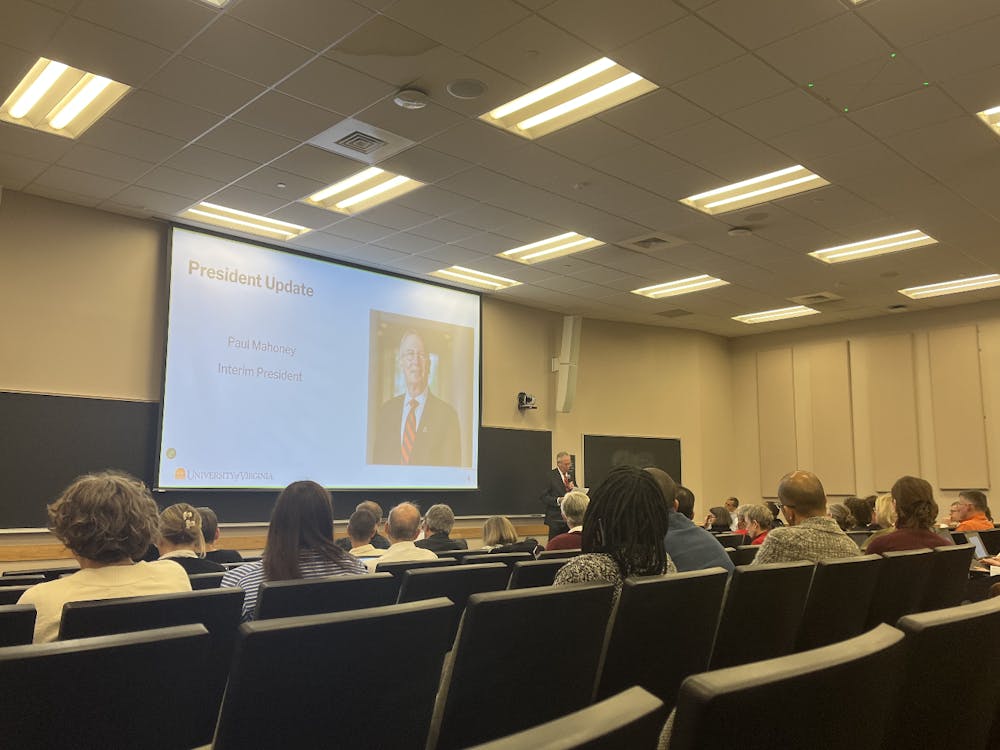The City of Charlottesville and Albemarle County will petition the General Assembly at the start of its next term to establish a regional transit authority and for the ability to use local taxes to fund such an authority, said Dave Slutzky, Albemarle Board of Supervisors member.
Slutzky said the city currently owns and operates the Charlottesville Transit Service, which the county pays for on a contract basis in order to have bus service provided throughout Albemarle County. The problem with the current arrangement, Slutzky said, is that the county is growing quickly and is consequently paying a larger and larger amount for the service.
“Before the county starts paying a higher and higher percentage of the [CTS] budget, we want at least equal footing [with the city],” Slutzky said. “We want to have an ownership stake.”
A regional transit authority would allow the city and county to expand bus service and make it more efficient, reliable, frequent and user-friendly, Charlottesville Mayor Dave Norris said. This would hopefully encourage more residents to use the transit system, he noted.
Under commonwealth law, though, un-elected bodies such as regional transit authorities cannot impose taxes, Norris said. Therefore, representatives from the city and the county are will ask the General Assembly in a separate piece of legislation for the authority use a portion of potential tax increases to fund the transit authority and to pay for other transportation projects, such as building new roads and walking paths in the area.
Norris said while transportation projects are usually funded by the commonwealth government, the city and county want the ability to fund their own projects because the commonwealth has cut transportation funding in recent years.
“Our state government is terribly derelict with their duty for transportation,” Slutzky said. “There is less and less money each year to fund projects. As a result, we’ve decided to ask for enabling resolution ... to fund our own transportation needs locally.”
While the county and city have not yet decided on the exact method they would use to fund the transit authority and other transportation projects, they are considering a variety of taxes, including a one-cent sales tax increase, an income tax and a gas tax, Norris said. He noted that while there is little opposition to creating a regional transit authority, there may be some opposition to increasing local taxes to pay for it.
Slutzky said the 2008 city survey included a question asking voters whether they would be willing to spend more county tax money on roads. Seventy percent of respondents said yes, Slutzky, said, and 58 percent said they would be willing to pay increased taxes to fund transportation projects in general.
“Certainly, there are some people who aren’t going to be supportive of a tax increase to pay for transportation priorities,” Norris said.
Morgan Butler, an attorney at the Southern Environmental Law Center, said while his organization supports the establishment of a regional transit authority, the organization is wary of supporting the second piece of legislation before it has been drafted. He noted that he presently is unable to decide whether he supports such legislation, given its current vagueness.
“Our point of view is that it would be nice to have at least some general sense of how much of the funding would be allocated to transit and general transportation projects,” Butler said, adding that depending on the forms of funding requested and their planned usage, he may object to the suggested increases.
Both Slutzky and Norris, though, said the details of the planned proposals have not been finalized and noted that more time is needed to designate specific ways to fund the proposed regional authority. Slutzky also noted that any tax increases or changes to the way the transit authority is funded must be approved by voters first. He said if the General Assembly gives the City of Charlottesville and Albemarle County the authority to increase taxes to fund transit and transportation projects, a referendum election must be held to allow voters to decide whether they want to fund the transit authority through taxes and other such means.
“If [the voters] say yes, then we’ll go forward,” Slutzky said. “If not, then we won’t do anything.”






